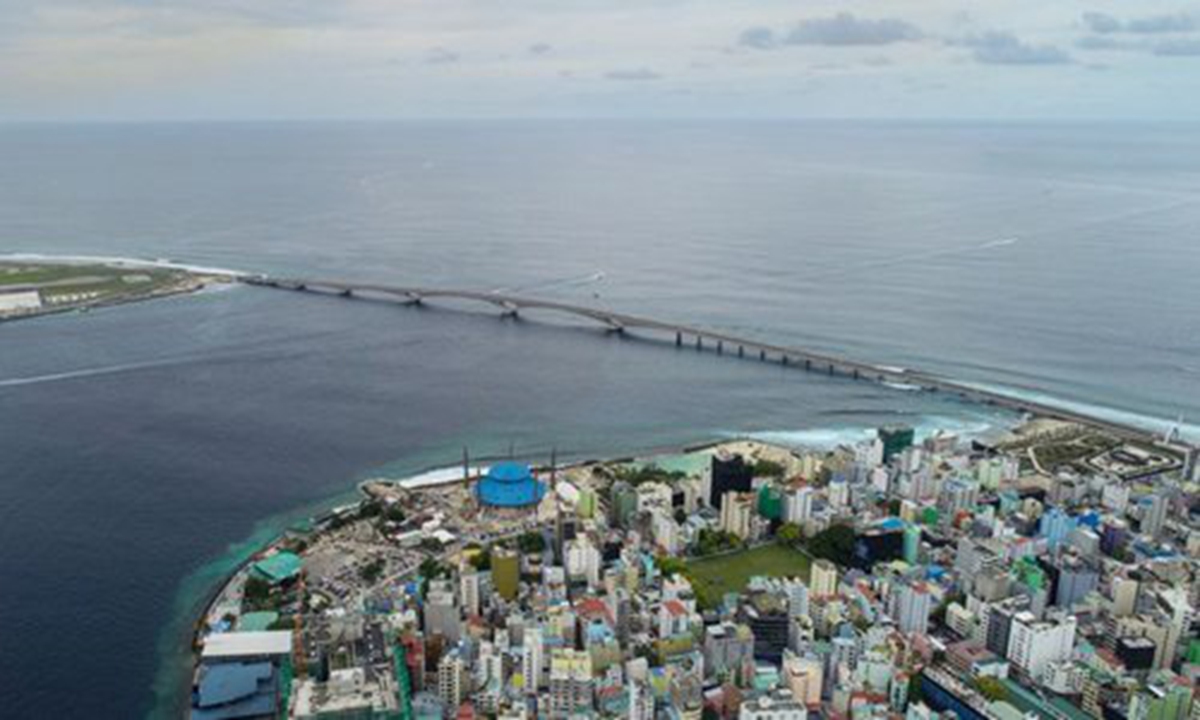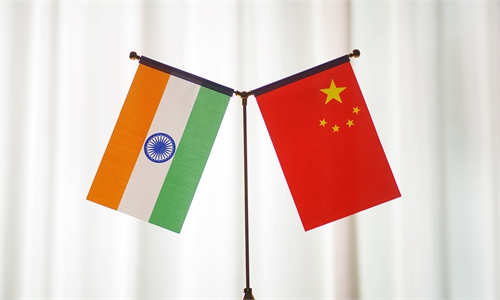
The China-Maldives Friendship Bridge in the Maldives. Photo: Xinhua
Maldivian President Mohamed Muizzu's ongoing state visit to China this week has become the focus of international attention, particularly among the Indian public.With the trip being his first visit to China as the president, Muizzu said he intends to promote economic, trade, tourism, investment and cultural cooperation with China, the Xinhua News Agency reported on Tuesday. Observers generally believe that cooperation pacts will be signed, covering infrastructure, tourism, climate change and green cooperation, among others.
Yet, Indian media outlets have shown a mixed feeling of being hurt and annoyed about Muizzu's visit, with wide coverage of the Maldivian president saying on Tuesday that China remained one of his country's closest "developmental partners."
As a diplomatic row just erupted between the Maldives and India, many media reports noted that he was the first Maldivian president to visit China before India, and some Indian public opinion has even elevated the president's China visit to the geopolitical level, claiming that the Maldives is adopting an "India-out policy."
Such annoyance about the Maldives' normal diplomatic and economic exchanges with China reflects the hidden arrogance shared among Indian public opinion over the Maldives. This is because India has always regarded the South Asian region as its backyard, and countries like the Maldives and Sri Lanka are more or less subject to Indian influence politically, economically and culturally.
But the approach of treating other countries as if they are subordinate to India is a distorted mentality. There is no reason to expect the Maldives' external cooperation and diplomatic policy to follow India's direction or prioritize India's geopolitical interests. It is not India's internal affair. As an independent sovereign country, the Maldives, in light of its own needs, has the right to pursue more cooperative relations with other counties, especially those that can offer more economic development opportunities, and China is clearly one of the good choices.
In view of the sound momentum of bilateral economic and trade relations between China and the Maldives, it is a natural development for bilateral cooperation to be further strengthened. China has been one of the most important sources of tourists for the Maldives. In 2022, bilateral trade amounted to $451 million, up 10.1 percent year-on-year.
The China-Maldives Friendship Bridge, a landmark project of the China-proposed Belt and Road Initiative (BRI) and a symbol of the profound friendship between the two countries, as well as other cooperation projects, has injected valuable impetus into the social and economic development of the Maldives in recent years.
Most importantly, the deepening bilateral cooperation in the economy, trade and infrastructure construction has always been based on mutual respect, mutual trust and non-interference in each other's internal affairs, which are key international principles on which the global economic and political order is built and sustained.
Fundamentally speaking, the Maldives' desire to develop its economy, promote tourism or other industries and increase its living standards is not a "betrayal" of anyone, but a fact that needs to be fully respected. Cooperation with China is not exclusive and does not affect relations with India.
From the Maldives' perspective, it values its cooperative relationship with China, because China's cooperation can help the country achieve economic development and prosperity.
Indeed, it is not in India's interest to see regional cooperation as its loss. It is a natural trend for countries like the Maldives to seek to avoid getting involved in the geopolitical struggle between big powers while maximizing its own interests amid complicated geopolitical changes.
As an important power in South Asia, India needs to be more open-minded about regional countries' cooperation with China, and even more actively in participating in regional economic exchanges, which is the only way to alleviate its concern over China's influence.



